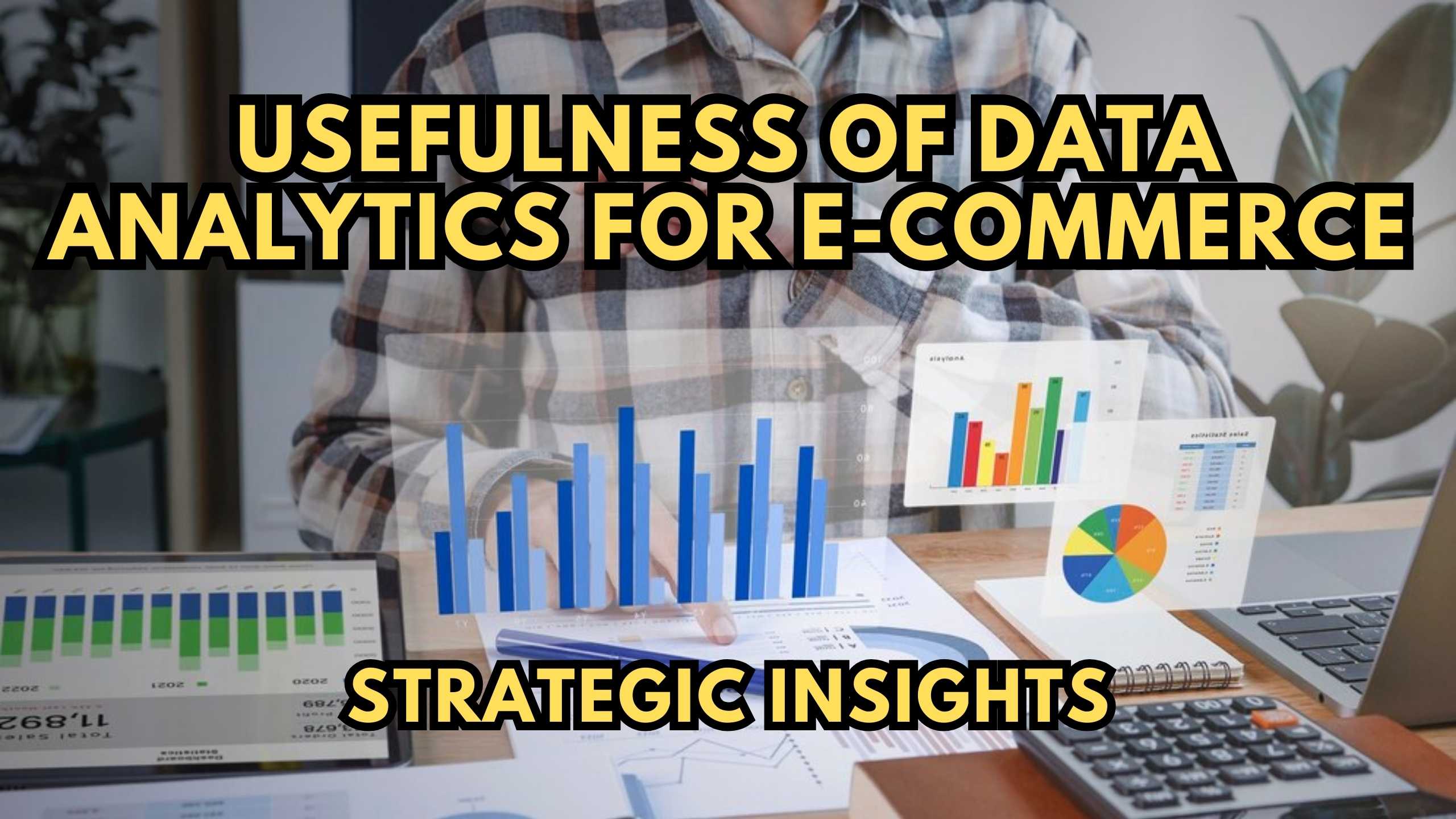Usefulness of Data Analytics for E-commerce: Strategic Insights
- Data as a Service (DaaS) Software Marketing & Analytics


Usefulness of Data Analytics for E-commerce: Strategic Insights
Data analytics has emerged as a cornerstone for success in the dynamic realm of e-commerce, offering strategic insights that empower businesses to thrive in the digital landscape. This blog explores the profound usefulness of data analytics for e-commerce, providing strategic insights that can reshape decision-making processes and drive success.
1. Customer Behavior Analysis: Enhancing Personalization Strategies
Understanding customer behavior is pivotal for e-commerce success. Tools like Google Analytics leverage data analytics to track user interactions, helping businesses comprehend customer preferences and habits. This data becomes a goldmine for enhancing personalization strategies, enabling e-commerce platforms to tailor offerings to individual preferences and boost overall customer satisfaction.
By unlocking the power of customer behavior analytics, businesses can create a more engaging and personalized shopping experience, fostering customer loyalty.
2. Inventory Management Optimization: Data-Driven Efficiency
Effective inventory management is a key challenge in e-commerce. Solutions like Zoho Inventory utilize data analytics to optimize inventory levels. By analyzing historical sales data, these tools provide insights into product demand patterns, ensuring that businesses can stock the right products at the right time. This not only prevents stockouts but also minimizes excess inventory, leading to cost savings.
For e-commerce businesses, data-driven inventory management is instrumental in maintaining a competitive edge and maximizing operational efficiency.
3. Conversion Rate Optimization: Fine-Tuning User Experiences
Data analytics plays a crucial role in optimizing conversion rates. Platforms like Optimizely enable A/B testing and analysis of user interactions, allowing businesses to experiment with different elements of their websites. By identifying which changes lead to higher conversion rates, e-commerce platforms can fine-tune their user experiences, ultimately driving more sales.
For businesses navigating the competitive e-commerce landscape, conversion rate optimization through data analytics is a strategic imperative.
4. Fraud Detection and Prevention: Safeguarding Transactions
E-commerce transactions are susceptible to fraudulent activities. Tools like Signifyd leverage advanced analytics and machine learning to detect and prevent fraud in real-time. By analyzing patterns and anomalies in transaction data, these tools ensure secure transactions, safeguarding both businesses and customers from potential threats.
Data-driven fraud prevention is essential for building trust in e-commerce, fostering a secure environment for online transactions.
5. Predictive Analytics for Marketing: Targeted Campaigns
Predictive analytics, as exemplified by platforms like Criteo, empowers e-commerce businesses to run targeted marketing campaigns. By analyzing historical data and user behavior, predictive analytics tools identify potential customers and deliver personalized advertisements. This approach significantly improves the effectiveness of marketing efforts, maximizing return on investment.
For e-commerce platforms, predictive analytics enhances marketing precision, ensuring that promotional efforts reach the right audience at the right time.
Relevant SaaS Products:
- Google Analytics: Unlock the power of customer behavior analytics to enhance personalization strategies and foster customer loyalty.
- Zoho Inventory: Optimize inventory management with data-driven insights, preventing stockouts and minimizing excess inventory for cost savings.
- Optimizely: Fine-tune user experiences and boost conversion rates through A/B testing and data-driven experimentation.
- Signifyd: Safeguard e-commerce transactions with real-time fraud detection and prevention powered by advanced analytics and machine learning.
- Criteo: Leverage predictive analytics for targeted marketing campaigns, ensuring promotional efforts reach the right audience for maximum impact.
Conclusion
In conclusion, the usefulness of data analytics for e-commerce goes beyond mere insights; it provides a strategic advantage in a competitive marketplace. From understanding customer behavior to optimizing inventory management and enhancing marketing precision, data analytics is a catalyst for informed decision-making. E-commerce businesses that harness the power of data analytics are better positioned to thrive in the digital landscape.
Elevate Your E-commerce Strategy with Subscribed.fyi!
Ready to elevate your e-commerce strategy? Subscribed.fyi offers exclusive deals on essential SaaS tools. Sign up for free to unlock secret deals and access savings on data analytics tools and other resources. Empower your e-commerce business with strategic insights and stay ahead of the competition with Subscribed.fyi.
Relevant Links:








